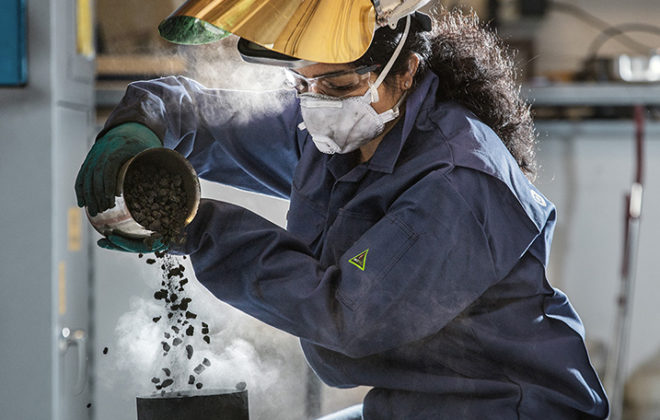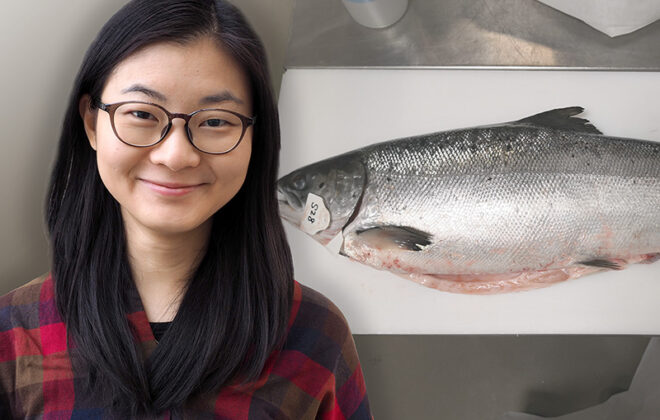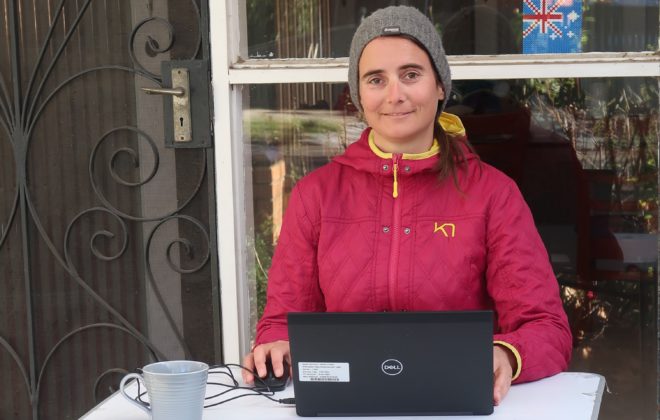PhD Perks, Wild Bears, and Arctic Adventure

As a PhD Candidate, I love my job. In Norway, we are well-paid, have research money, and generally are spoiled compared to our colleagues in other corners of the world. I am also the first to admit that the PhD process can get old sometimes, even with action packed field-work rich geology research like my own. Fortunately, there are opportunities for growth and inspiration, almost* in our own backyard.
*(Svalbard is actually 1645 km away, but it is part of Norway and attending UNIS is a breeze when affiliated with NTNU.)
While NTNU has fantastic facilities, great colleagues, and a well-founded and professional research environment, sometimes we as PhD candidates are hungry for new input. In my case, having done an annual course, my BSc, MSc and now PhD at NTNU, I was looking for something new. The obvious solution might be a semester or year-long exchange, but exchanges are major commitments. It can be difficult to find another institution compatible with one’s own research, and for those with families, or a newlywed like myself, leaving home for six months to a year is not necessarily an option for everyone.

But there are other options closer to home, which offer the benefits of an exchange, including an international professional environment, and an inspiring new setting, without the major time commitment or logistical challenges an exchange may present. The University Center in Svalbard provides 46 PhD level courses across a range of subjects, most of which last from 5-6 weeks. Earlier this fall, I had the privilege of attending just one course, AG-836 Rift Basin Reservoirs: From Outcrop to Model, including a 10-day stint in the field, based out of the now-defunct Russian mining town, Pyramiden.

Spending 5 weeks on Svalbard is itself an adventure. Numerous opportunities for getting outdoors and exploring the wilderness around Longyearbyen (where UNIS is located) and Pyramiden exist, just remember to bring a rifle in case of a polar bear attack. Actually, attacks are rare and no UNIS students have ever been mauled by a bear. That is in part due to the stringent safety training provided by UNIS, and the distribution of necessary equipment to ward off curious bears before an attack. One moment of excitement occurred in the field, when our logistics and safety coordinator fired flares at a rapidly approaching bear. Fortunately, we safely evacuated the area without ever meeting the animal. Crisis averted for both bear and students.

As a geologist, the opportunity to explore and work in new field areas is critical, as it provides fresh perspectives and room for professional growth. But at UNIS, the learning didn’t stop when we came in from the field. Led by Professor Alvar Braathen (UIO), with help from Jan Tveranger (NORCE), Per Terje Osmundsen (NTNU), and Alexandra Smyrak-Sikora (UNIS), the AG-836 course was both intense and interactive. I gave more presentations at UNIS in 5 weeks, than I have in 15 semesters at NTNU. While 5 weeks of intense learning may seem daunting, the frequent participation made staying on board with the lectures easy. And the wonderful group of PhD candidates and MSc students from a range of Norwegian and international institutions, all housed together in comfortable accommodations, resulted in a network of friends for life. If you are looking for a change, or just in need of some adventure, a course at UNIS is a perfect opportunity to grow as a researcher and have fun while doing it.

Eric James Ryan
Eric James Ryan is a PhD Candidate at the Department of Geoscience and Petroleum
Search
Søk
Categories
- Arctic Research
- Arkitektur
- Bærekraft
- Bioingeniørfag
- Biologi
- Biology
- Biomedical Laboratory Science
- Biotechnology
- Bioteknologi
- Chemical Engineering
- Chemistry
- Climate
- Computer Science
- Datateknologi
- Digital
- Elektronikk
- Energi
- Energi
- Energy
- Engineering
- Engineering
- Environment
- Food Science
- Forskning
- Fysikk
- Fysikk
- Havbruk
- Informasjonsteknologi
- Informasjonsteknologi
- Ingeniørvitenskap
- Kjemi
- Kjemisk prosessteknologi
- Kjemisk prosessteknologi
- Kreftbehandling
- Kybernetikk
- Marine Technology
- Materialer
- Materials Science
- Materialteknologi
- Matvitenskap
- Meninger
- Miljø
- Min ph.d.
- My PhD
- My PhD
- My postdoc
- Nanotechnology
- Nanoteknologi
- Ocean
- Oil and gas
- Physics
- Research
- Simulering og visualisering
- Spør en forsker
- Studentliv
- Sustainability
- Ukategorisert
- Universitetsliv
- University Life
Kategorier
- Arctic Research
- Arkitektur
- Bærekraft
- Bioingeniørfag
- Biologi
- Biology
- Biomedical Laboratory Science
- Biotechnology
- Bioteknologi
- Chemical Engineering
- Chemistry
- Climate
- Computer Science
- Datateknologi
- Digital
- Elektronikk
- Energi
- Energi
- Energy
- Engineering
- Engineering
- Environment
- Food Science
- Forskning
- Fysikk
- Fysikk
- Havbruk
- Informasjonsteknologi
- Informasjonsteknologi
- Ingeniørvitenskap
- Kjemi
- Kjemisk prosessteknologi
- Kjemisk prosessteknologi
- Kreftbehandling
- Kybernetikk
- Marine Technology
- Materialer
- Materials Science
- Materialteknologi
- Matvitenskap
- Meninger
- Miljø
- Min ph.d.
- My PhD
- My PhD
- My postdoc
- Nanotechnology
- Nanoteknologi
- Ocean
- Oil and gas
- Physics
- Research
- Simulering og visualisering
- Spør en forsker
- Studentliv
- Sustainability
- Ukategorisert
- Universitetsliv
- University Life



